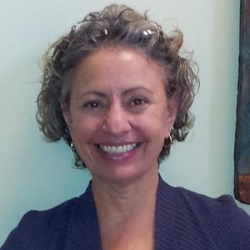Loading
Read MorePeer Triangle Radiant Reflection™ (RR) (Session 3) – Amy Skezas, Topsoil, & Diane Wian
Loading
Read MoreFitness to Practice: Discussing Your Plan B in Supervision – Kathy Raffles
Loading
Read MoreYou Are Your Accreditation (Part 2) – Joan Wilmot & Robin Shohet
Loading
Read MoreWhat Do We Mean by Authority in Supervision? – Steve Page
Loading
Read MoreA New Model of Supervision From A Constructivist/NLP Perspective – Martin Weaver
Loading
Read MoreAuthority and Authenticity – Joseph Wilmot
Loading
Read MorePeer Triangle Radiant Reflection™ (RR) (Session 2) – Amy Skezas, Topsoil, & Diane Wian
Loading
Read MoreSupervising Counsellors Working with Children and Young People: Resources and Information – Sue Lewis
Loading
Read MoreMyth Busting Supervision – Mark Head
Loading
Read MorePeer Triangle Radiant Reflection™ (RR) (Session 1) – Amy Skezas, Topsoil, & Diane Wian
Loading
Read MoreHow to Become the Supervisor You Are – Mark Head
Loading
Read MoreAll Inclusive: Developing Dialogue in a Diverse World – Karl Gregory
Loading
Read MoreYou Are Your Accreditation – Joan Wilmot & Robin Shohet
Loading
Read MoreThe Internet and Me: Working as an Online Supervisor – Maria O’Brian
Loading
Read MoreWhat Do You Get from Supervision? Do You Need What You Get? – Kathy Raffles
Loading
Read MoreSupervision in Family Nurse Partnership – Lindsay Andrews
Loading
Read MoreWorking with Children and Young People: An Ethical and Legal Minefield? – Peter Jenkins
There has been dramatic growth of counselling services for children and young people in the last decade, but counsellors continue to anxious about how best to provide therapy and also deal with safeguarding issues, self-harm, parental consent and other major challenges to confidentiality.
This session will explore some of these issues in the context of the author’s model of children’s rights, which has been specifically designed to support counselling with children and young people in England and Wales.
Read MoreReflections on International Supervision Week – Joan Wilmot and Robin Shohet
Friday 17th July is the last day of International Supervision Week. In this hour we will review why we at Centre for Supervision and Team Development and onlinevents combined to make it a world wide event, what we have done and plans for it to be repeated next year.
Read MoreSupervising Counsellors Working with Children and Young People – Sue Lewis
Sue has extensive experience supervising counsellors working with children and young people. She is passionate about the need for quality supervision in this field. Although rewarding, it is particularly challenging: supporting practitioners to work effectively with their clients whilst staying mindful of safeguarding responsibilities and managing relationships with parents, schools, and other agencies.
Sue is looking forward to sharing her own experience of this work and invites you to share your experience, fears, and hopes in offering and receiving this kind of supervision.
Read MoreSupervision: It’s Not Just for Psychotherapists and Counsellors – Alex Stewart
I want to look at how the therapeutic tool box we all develop over time can be applied in the everyday life and place we inhabit. I believe that these tools can be a huge power in political change in the way we live together, how we view difference and actually communicate as people.
I am aware as I write this how even the act of presenting these words can be misinterpreted and for this reason want to be able to encourage an open forum during the discussion online.
Read MoreSupervisory Relationship: Both within the Creation and Supporting the Creative Process – Steve Page
In this conversation, Steve will endeavour to tease out some of the different ways of considering the nature and purpose of ‘supervisory relationship’ and its part with the overall work that is being supervised.
Read MoreExploring Work & Supervision Within Different Relational Contexts – Joseph Wilmot and Joan Wilmot
The settings and contexts in which we work involve different roles and responsibilities. These determine our approach to the work and can present us with a complex and changing landscape to navigate.
Joseph Wilmot and Joan Wilmot want to explore work and supervision within different relational contexts. Their relationship encompasses the familial, collegial, organisational and beyond. We will invite the group to explore and share their own experience of relationships in their work.
Read MoreWork is Love in Action – Joan Wilmot and Robin Shohet
Joan and Robin spend time reflecting with the online group about the place of work in our society and how supervision can help us to experience work as love in action.
Read MoreWheel of Supervision Training and Practice Groups – Alison Strasser & Adam McLean (Australia)
In this event, Alison and Adam are talking live from a Supervisors’ retreat in Byronshire, Northern New South Wales, an annual event which they offer to Supervisors who have completed their Wheel of Supervision Training.
They talked about the Wheel of Supervision Training which emerged from Alison’s doctoral thesis. It approaches supervision from a holistic standpoint: encouraging supervisors to create a personal model that works for them, focusing on putting theory into facilitated practice and on the development of the person of the supervisor.
Read MoreShould I Tell My Supervisee What I Think? – Anastacia Grant
I’ve been thinking (and talking) lately about the place of opinion in the supervision interaction. Does it have a place? What occurs when opinion is requested? What occurs when opinion is given?
Informal feedback from some of my supervisees suggest that opinion is an important tool for those who are wanting another perspective in the discussion related to their supervision items. I also hear opinion can be a distraction, a form of conflict and not a comfortable intervention especially when a supervisee is new or less confident.
Read MoreThe Use of the Supervisory Relationship for Learning in Supervision – Margot Solomon
How do experienced psychotherapists continue to learn in supervision? This conversation will explore how the supervisory relationship can be used as a primary resource for a supervisee throughout their career.
As a supervisor I value the reflective process that facilitates awareness of underlying emotional blocks or communications that have yet to be metabolized in the supervisory matrix. This requires me as a supervisor to be willing to continue to learn alongside my supervisee, to bear experiencing unconscious processes, to feel uncomfortable, to not understand or be able to make sense; and to recognize that anything that I experience in the session has potential for learning for both supervisee and supervisor.
Read MoreBut I Only Use a Bit of Skype for Supervision – Anne Stokes
In this hour Anne will look at what needs thinking about whether your online supervision is the occasional use of emails and live chat or whether you mainly supervise online.
Read MoreSupervisors: A New Duty of Care? – Peter Jenkins
This session will explore some of the ethical, professional and legal issues relating to supervisor “duty of care” and liability for supervisee’s practice, comparing US and UK models, together with changes to the role of the supervisor currently proposed by the BACP Ethical Framework (2016).
Read MoreTransactional Analysis and Supervision – Mark Head
Within this interview we will be exploring what Transactional Analysis, as an approach and a body of theory, can bring to the supervision process. Of particular focus will be the use of contracting within supervision.
Read MoreIs Supervision for Everyone? – Karl Gregory
Karl is looking forward to talking about his passion for Supervision as a profession in itself. And thinking about the question, “Is Supervision for everyone?” Or even, is it for anyone?
Karl developed a supervision practice long before he trained as a therapist and is passionate about the role of Supervision for all fields, not just counselling & Psychotherapy.
Read MoreSupervision on the Edge – Jacqueline Simon Gunn & Brent Potter
Contemporary clinical supervision calls supervisors to attend to material that does not fit neatly into diagnostic categories and labels. Varieties of psychological distress continue to flourish and do so in ever more complex ways. How does a supervisor understand material that has no reference point in the diagnostic literature?
One of the dimensions that remains largely unaddressed is the supervisor’s own personal emotional, psychological, and lived engagement with and reaction to the supervisee’s presence and clinical content. Where is the ‘container’, the boundaries surrounding the supervisor-supervisee relationship and when does it more resemble psychotherapy?
These and related facets of the clinical supervision relationship will be explored in intimate detail.
Read MoreInter(national)vision – Keith Tudor
In this event, Keith will discuss some of his ideas about supervision, including: the difference between being person-centred and client-centred; issues of responsibility and professional regulation; and supervision across jurisdictions. All these can be framed as part of inter-vision, i.e., super or wider vision between supervisor and supervisee, as distinct from supervision of or over the supervisee.
He also has interests in group supervision; supervision of brief therapy; supervision that is consistent with therapeutic modality; and training supervisors: all areas which might be discussed in this interactive online event.
Read MoreThe Exploration of Imagery and Response Art in Clinical Supervision – Diane Rode, Morgan Stojanowski, & Sarah Yazdian
In this session, which will combine taped clinical supervision encounters with live, interactive discussion, we will explore ‘response art’ and imagery in dialogue with two Child Life Specialists who work with children and adults at The Mount Sinai Kravis Children’s Hospital in New York City in Pediatric Medical/Surgical environments.
The value of artmaking by supervisees and refection of this work within Supervision will be explored as well as the discussion of various art-based supervision techniques focused on facilitating the capacity for reflection and self-awareness in supervisees.
Read MoreSupervision and the Dark Side – Martin Weaver
Supervision using Constructivist theory and practice to engage supervisees’ experience of Trauma, Bereavement & those difficult conversations.
A discussion focussing on ways to meet the supervisee working with stressful situations in order to create helpful and flexible responses.
Read MoreRadiant Reflection™ (LIVE DEMONSTRATION) – Amy Skezas, Topsoil, Julie Murphy, & Diane Wian
Radiant Reflection™ (RR) is a unique way of fostering well-being for people who are interested in growth and development through reflection and exploring consciousness.
Read MoreLive Group Supervision with Robin Shohet – Session 4
This is a 4 week project with a live group supervision event each week facilitated by Robin Shohet.
The purpose of this project is to offer an online learning environment to experience and reflect upon group supervision.
Read MoreLive Group Supervision with Robin Shohet – Session 3
This is a 4 week project with a live group supervision event each week facilitated by Robin Shohet.
The purpose of this project is to offer an online learning environment to experience and reflect upon group supervision.
Read MoreLive Group Supervision with Robin Shohet – Session 2
This is a 4 week project with a live group supervision event each week facilitated by Robin Shohet.
The purpose of this project is to offer an online learning environment to experience and reflect upon group supervision.
Read MoreLive Group Supervision with Robin Shohet – Session 1
This is a 4 week project with a live group supervision event each week facilitated by Robin Shohet.
The purpose of this project is to offer an online learning environment to experience and reflect upon group supervision.
Read More





















